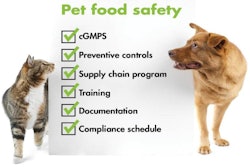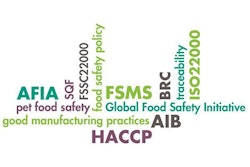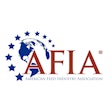"Discretion is the better part of valor," a paraphrase from Shakespeare's Henry IV, is a commonly heard but often misinterpreted saying. In the context given, the quote from Falstaff does not suggest that the heroic exercise is the quality of being "discreet" as we most often use the term. In the same vein, "regulatory discretion" does not suggest one be cautiously quiet when dealing with regulators (although that practice is often prudent). While the term is often bantered about in this column and elsewhere whenever regulation of pet foods are discussed, based on what I have heard from others trying to explain it to me, exactly what it means is elusive to some.
Basically, regulatory discretion is when a regulatory body such as the US Food and Drug Administration (FDA) or a state feed control official chooses not to act against something or someone even though that something or someone may not wholly conform to the letter of the law. The more technically accurate term is "enforcement discretion," because an agency actually can't decide whether it wants to regulate something or not, but only how it wishes to enforce those regulations. In any case, it is not a practice unique to pet food regulation. In fact, probably every facet of government exercises it to some degree. For many issues, there seems to be a constant call for new laws to address serious issues; but more often than not, the best means of rectifying any existing problems is not necessarily enacting new laws, but rather enforcing the laws already on the books.
According to some, regulatory discretion as practiced by FDA and states is tantamount to collusion between government and the pet food industry to intentionally deceive the public as to the safety and quality of pet foods. However, the primary purpose of regulatory discretion is not for the direct benefit of the industry, but rather for the government to establish enforcement priorities and make the most effective use of resources available.
The most common analogy to FDA's and states' practice of regulatory discretion is how the highway patrol officer enforces traffic laws. Yes, the posted speed limit on Interstate 5 is 65 miles per hour, yet the flow of traffic is actually closer to 70. The officer legally could stop everyone disobeying the posted limit and issue citations. However, the number of violators would require many, many more officers on duty, all working feverishly to even come close to catching everyone speeding. Simply put, there are not enough resources for the highway patrol to do its job as mandated. Also, stopping everyone may not necessarily improve overall highway safety. So, it appears prudent if not necessary to set some sort of reasonable standard outside of the letter of the law.
To effectively control traffic speeds to a reasonable level, the highway patrol must choose who to stop by setting rationally based priorities. Stopping only cars of a certain color or occupants of one race would be an arbitrary and capricious basis for establishing enforcement standards. However, considering that the bigger danger comes with higher speed, focusing on cars in excess of a number somewhere higher than the posted limit appears to make more sense. In the same way, FDA can't just choose how it will enforce the law for its convenience or by some subjective standard, but rather must rely on its assessment of risks in deciding where strict enforcement of the Federal Food, Drug and Cosmetic Act (FFDCA) is critical to human and animal health and where efforts will only achieve minimal benefits.
How the regulators assess the risk can be a subject of legitimate debate. There have been recent discussions as to the distinction between "feed grade" and "food grade," even though FFDCA defines standards for "food" as applicable to animals or people equally. So, are regulators considering all the factors when defining where to draw the line? How are they separating true health risks from more aesthetic concerns?
On the other hand, too much public information on discretionary policy can work against appropriate use of regulatory discretion. FDA does post some guidance documents regarding its enforcement priorities, but industry must remain cautious any time it strays even slightly from the law. In the same way, the traffic cop probably won't stop you until you exceed a certain speed somewhere above the posted limit, but if everyone knew the exact speed where that happens it would defeat the purpose of speed limits in the first place.
In any event, throwing out the whole concept of regulatory discretion would be ill-advised. To do so would be the definition of a Draconian society, where even the most minor of infractions or practice outside the strict interpretation of the law is dealt with harshly. While many see benefit to industry, the appropriate practice of regulatory discretion by FDA and states is also helpful to the consumer.
Without the exercise of regulatory discretion, there would be no allowance for veterinary-directed foods for the mitigation of certain illnesses in dogs as cats, as they would be unapproved drugs. Also, there would be no means to allow for many of the animal dietary supplement products now on the market, even if their counterparts were perfectly acceptable under the law when intended for human consumption.
In fact, the whole basis for the Association of American Feed Control Officials (AAFCO) Ingredient Definition process relies on regulatory discretion. FDA and AAFCO are now contemplating the finding of "legal homes" for many AAFCO-defined ingredients. Those that don't make the cut may disappear from use, even those that may have been used safely for up to 50 years. Although FDA has been integral to the AAFCO definition process for a long time, FDA now is being advised by counsel that its use of regulatory discretion is excessive. To me, we need more, not less regulatory discretion. Otherwise, industry will be seriously curtailed to the detriment of the consumer.

















